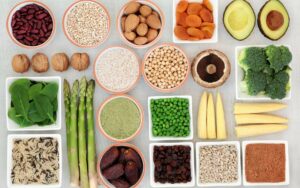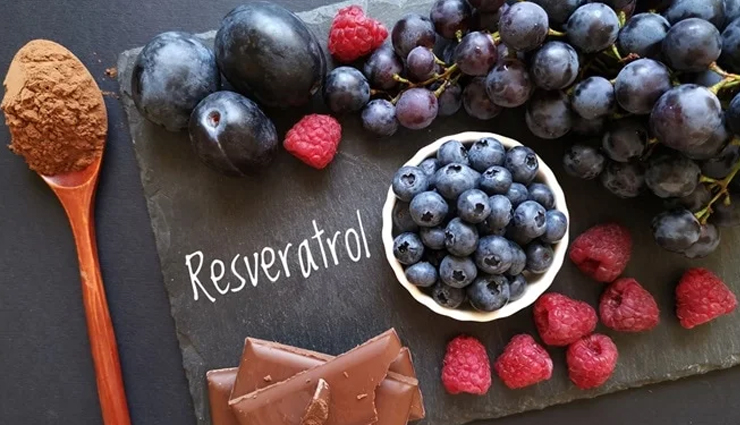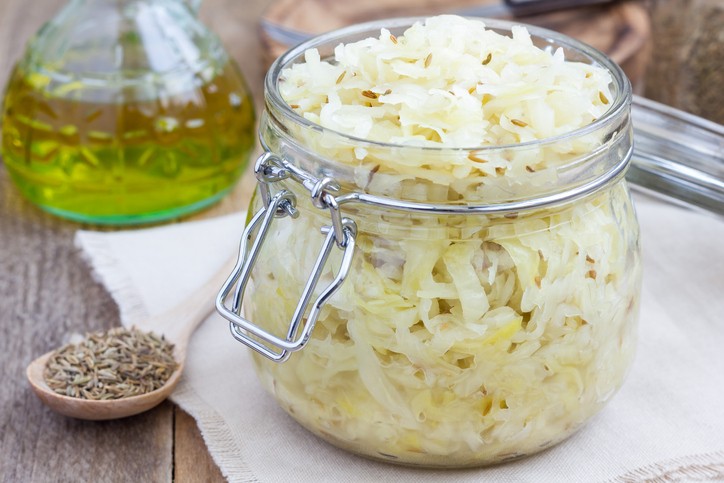Support Your Microbiome: 4 Tips to Improve Gut Health
April is International National IBS (Irritable Bowel Syndrome) Awareness Month. It seems that many people experience digestive issues, and there can be some clarification as to why! Continue reading to learn about 4 tips to improve gut health!
IBS affects between 25 and 45 million people in the United States. About 2 in 3 people with IBS are female, and about 1 in 3 are male. IBS even affects children.
Scientists and medical professionals don’t exactly know what causes IBS, but it’s a common disorder that affects the large intestine and shows up as cramping, abdominal pain, bloating, gas, and diarrhea or constipation, or both. IBS is a chronic condition that needs to be managed long term.
Some people can control their symptoms by managing diet, lifestyle and stress – which is what we’d like to address in our April newsletter. Whether you have IBS or occasional gut issues, it’s always helpful to learn new ways to support your gastrointestinal health.
The 4 Golden Rules for Supporting Gut Health
Hippocrates, the father of modern medicine, once said, “All disease begins in the gut.” The modern equivalent is the saying “You are what you eat.”
More recently, scientists discovered that the gut is the seat of the immune system, and home to trillions of microbes, which they’ve named the microbiome. The microbiome communicates with every cell in the body — including the brain — helps protect you from infection, helps the body make vitamins, and manages your metabolism.1 So when dysbiosis – an imbalance in the types of organisms in the microbiome – takes over, it’s easy to understand why your overall health can also get out of balance.
Dysbiosis is complex. It is characterized by an overgrowth of “bad” bacteria in the small intestine which can occur from a diet rich in fat, meat and lack of fiber.2 It can also result from sensitivity to gluten. But the main issue is that dysbiosis increases the risk of pathogen microbes out-numbering the good bacteria in your gut.
How to fix an imbalanced microbiome
1. Take A Probiotic
There’s tons of evidence supporting the ingestion of probiotics to support gut health.3 In fact, scientists have been studying how modifying the gut microbiome affects health since 1907.4 And they have found that eating fermented products, or taking probiotic supplements, is associated with longevity and good health.5 In recent years, researchers discovered that IBS patients may have an altered microbiota when compared with healthy individuals5, and that probiotics are definitely effective in improving gut health.
Probiotics are live organisms, typically the strains of bacteria that contribute to the population of healthy microbes in your gut. Yogurt is the most popular probiotic food. It is made by fermenting milk with various bacteria that remain in the final product. These bacteria-fermented foods are also good probiotics: kefir, sauerkraut, fermented pickles, kombucha, miso, and kimchi.
If you don’t like fermented foods, try drizzling apple cider vinegar – a probiotic – on your salad. Blend together 1/3 cup olive oil, ¼ cup cider vinegar, 2 teaspoons of Dijon mustard, 2 teaspoons honey, ½ teaspoon salt, and ¼ teaspoon black pepper. This will keep in the refrigerator for up to a week.
2. Eat Prebiotic Foods

Prebiotics are carbohydrate foods that are high in inulin6 and/or beta glucan7, which are soluble fibers that feed the growth of friendly bacteria in your digestive system. Although you can’t digest these fibers, the probiotics in your gut feast on them. Prebiotic foods include chicory root (used as a coffee substitute), flax seeds, chia seeds, legumes, oats, asparagus, yams, artichokes, garlic, bananas, jicama root, and onions.
You can also find prebiotics in dietary supplement, but it’s best to eat the whole foods that contain fiber, vitamins and minerals. Not all of these foods are for everyone, however. People who have IBS may experience bloating, gas, or other intestinal discomfort.
3. Drink Plenty of Water
Water hydrates our bodies and our brains, and flush out toxins. Dehydration is one of the most common causes of chronic constipation. Water helps keep the food you eat moving through the digestive tract, and keeps your intestines smooth and flexible. It’s easy to forget that water is a key to maintain a healthy gut. So please drink at least 6 to 8 glasses of purified or filtered water every day.
4. Reduce Stress
Stress interferes with our digestive health and our lives in more ways than one. It can contribute to gastric upset and make us feel anxious about taking the time to have a relaxing meal. Find a stress-reducing practice that you can stick with. Meditation, yoga, qigong, jogging, swimming, singing, playing an instrument, forest bathing, or just walking around the block. Anything that helps to increase self-awareness and our sensitivity to what’s going on internally is worth its weight in gold.
Overall
Keeping your gut bacteria balanced is vital to your overall health and mental well-being. Consider keeping a food journal for a few days to evaluate your intake of probiotic and prebiotic foods. And don’t forget to try out the 4 tips to improve gut health- your microbiome will thank you for it!

















